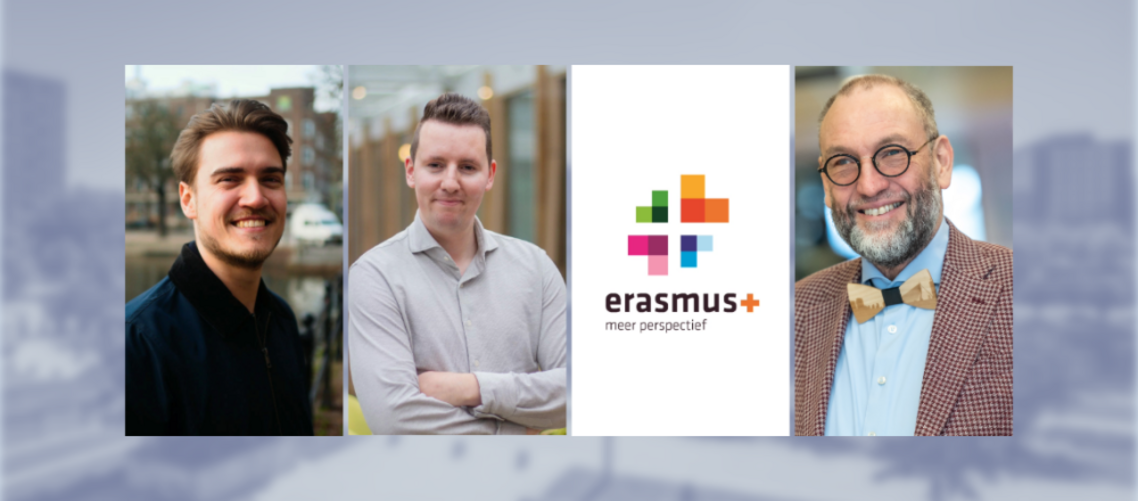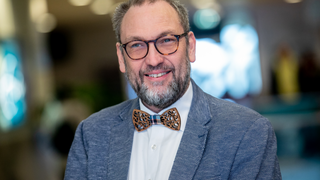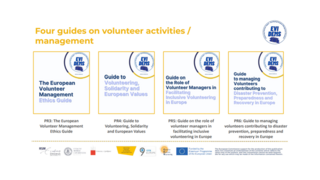The project, Service-Learning to promote Competences for Democratic Culture (SL4DC), aims to investigate how students can strengthen their democratic competences by using classroom learning for theories while volunteering in the community at the same time. It starts on 1 November 2025 and will examine the important role that universities play in strengthening European democratic values, like sharpening critical thinking, the development of democratic citizenship and installing a sense of social engagement among students so they can make a positive contribution to a sustainable and just society.
Map of service-learning across Europe
SL4DC will result in a report mapping existing European service-learning practices for strengthening democratic competences, new teaching materials and training programmes for teachers and community organisations, an online repository containing inspiring examples, and specific service-learning pilot projects fostering democratic competences.
Ivo Geers said: “As RSM we have the crucial responsibility of kicking off the project, leading the first work package and coordinating data collection to map the effective service-learning experiences around Europe. We essentially want to understand: what makes service-learning experiences tick when developing democratic competencies. This information will subsequently feed into the materials and pilot schemes that we make.”
Challenges to democracy
The project is in response to growing challenges to democracy like increasing polarization, fake news and disinformation, as well as declining civic participation and social fragmentation – a growing number of citizens are disengaging from democratic decision-making. Higher education has a critical role in equipping students with competences for active and responsible citizenship with active, experiential learning approaches connecting academic knowledge with real-world societal challenges. Despite the policy recommendations and urgency of these issues, higher education in Europe still lacks systematic approaches to integrate competences for democratic culture into curricula and civic education remains a peripheral activity in many European universities.
Maps, pilots and educational materials
The project focuses on three main areas:
- Mapping existing European service-learning practices that strengthen democratic competences of students and societal actors.
- Developing pilot projects and educational materials for combining art and service learning as a powerful combination for fostering democratic competences.
- Developing pilot projects and educational materials for using service-learning as a method to combat disinformation and polarization.
European collaboration
The SL4DC project is coordinated by UCSIA and brings together twelve partners from nine European countries, mainly higher education institutions. In addition, several European service-learning networks are also involved, ensuring that the results can be widely disseminated throughout European higher education.
The partners are:
- University Centre Saint-Ignatius Antwerp (UCSIA), Belgium (coordinator)
- Rotterdam School of Management, Erasmus University Rotterdam (EUR), the Netherlands
- European Association of Service-Learning in Higher Education (EASLHE), Belgium Hochschulnetzwerk Bildung durch Verantwortung e.V. (HBdV), Germany
- Libera Università Maria Ss. Assunta di Roma (LUMSA), Italy
- Pädagogische Hochschule Wien (PHW), Austria
- Sveuciliste u Zagrebu (UNIZG), Croatia
- Università di Bologna (UNIBO), Italy
- Universitat de les Illes Balears (UIB), Spain
- Univerzita Mateja Bela v Banskej Bystirci (UMB), Slovakia
- Universitatea Natională de Știință și Tehnologie Politehnica București (POLITEHNICA), Romania
- Universiteit Utrecht (UU), the Netherlands
About the project
University Centre Saint-Ignatius Antwerp (UCSIA) in Belgium will co-ordinate the project Service-Learning to promote Competences for Democratic Culture (SL4DC). Project co-ordinator is Kaat Somers and acting director is Erik De Bom.
- Identify and analyse service-learning practices effectively contributing to competences for democratic culture;
- Develop, pilot and evaluate service-learning approaches for the development of competences for democratic culture;
- Develop, pilot and evaluate service-learning practices for truth (addressing challenges of mis- and disinformation) and trust (to bridge social and political divides in society).



